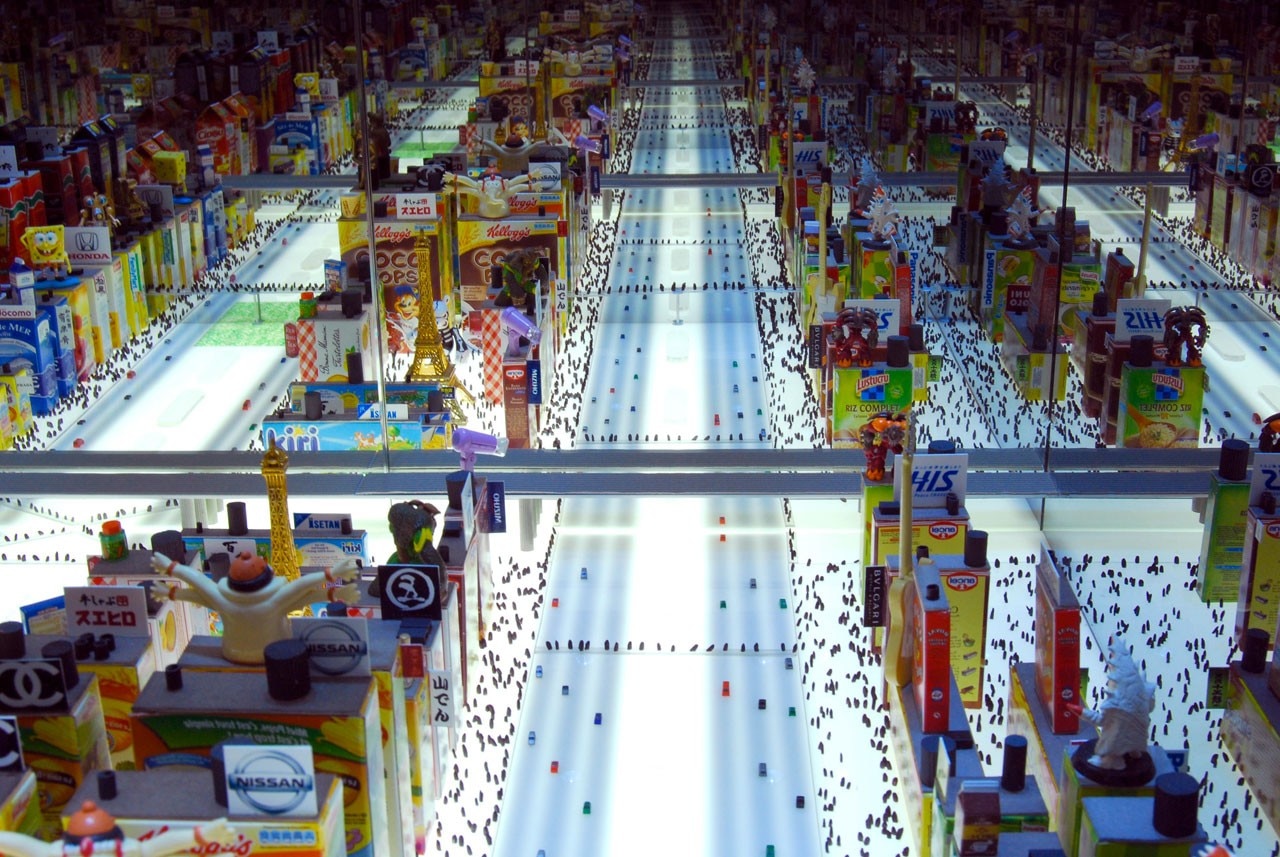After his two solo exhibitions in Paris, “Open Enclosures” at the Fondation Cartier (2008) and “Grandi Legni” at the Galerie Alaïa (2009), we now follow an excursus that starts from his debut with Archizoom associates, a key presence in radical architecture, and continues to the present day.
The curator Constance Rubini, director of the Museum of Decorative Arts in Bordeaux, decided to showcase his work in the beautiful mediaeval church of Saint-Rémi.
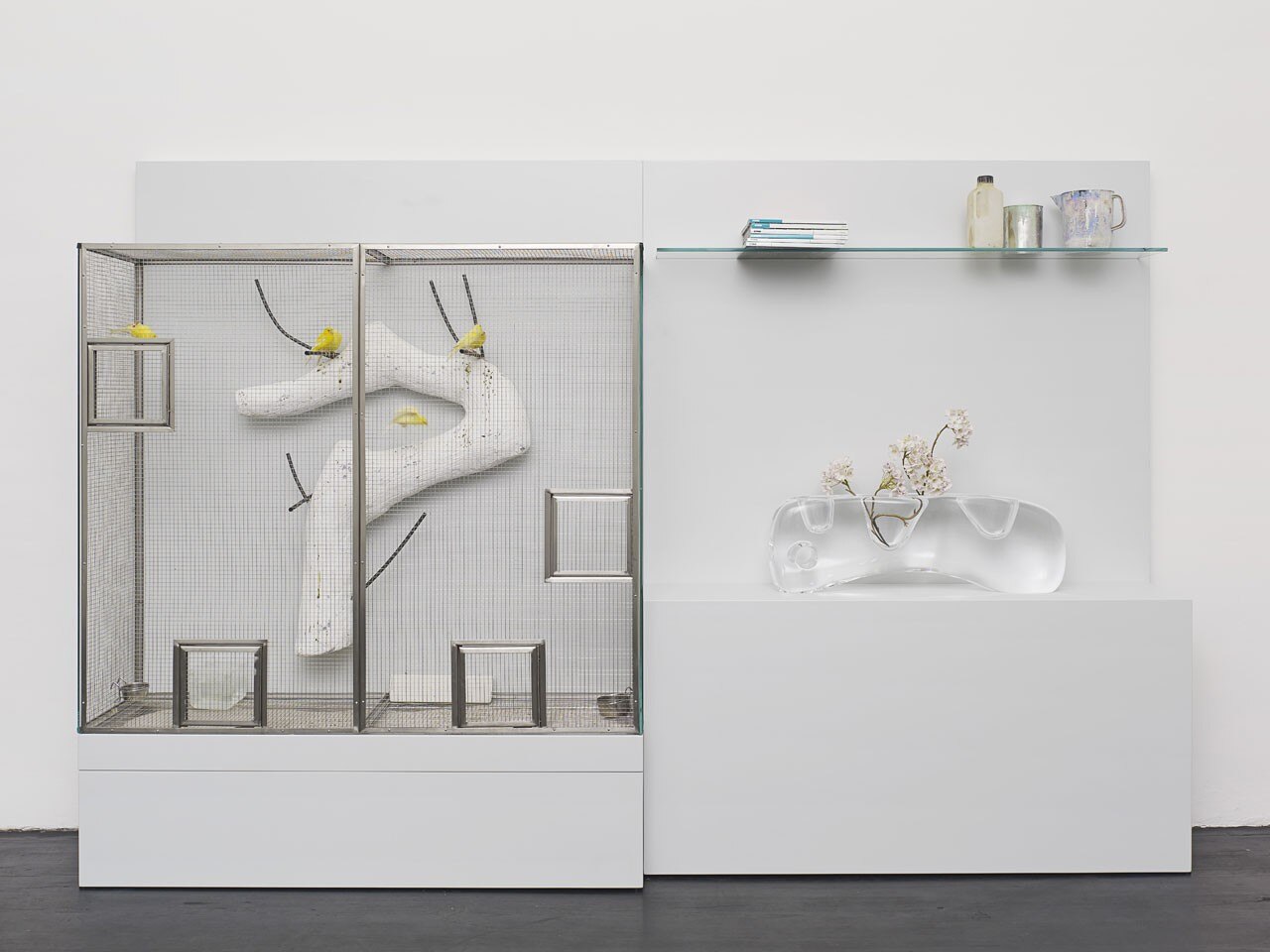
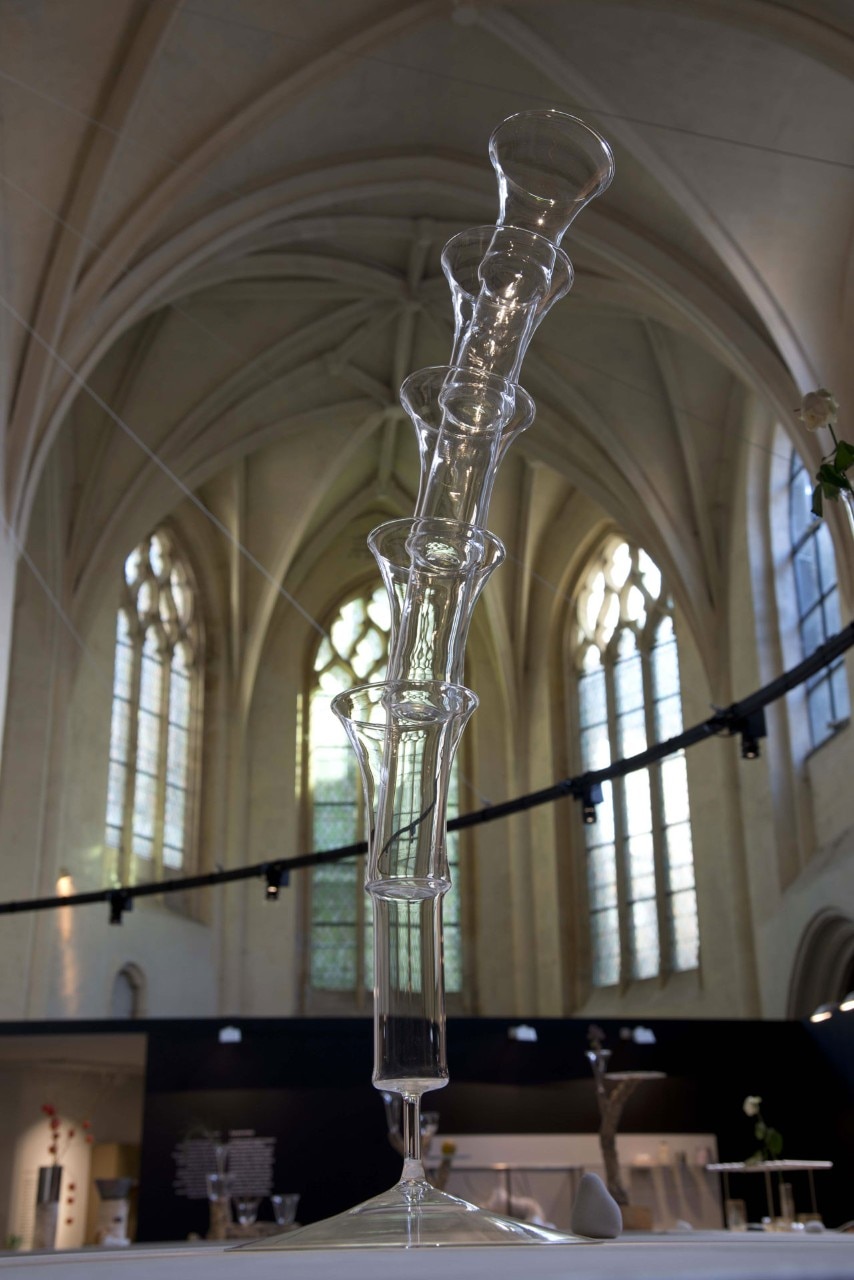
Branzi was a founder of the Italian Radical Architecture movement first and subsequently Nuovo Design Italiano, he played a key role in Alchimia and Memphis, and he released design from the Functionalist constraints, giving free rein to its poetic and narrative energy, and rejecting the happy ending to which the Modern masters and slick appearance of some contemporary design had accustomed us.
We see the different stages of his career in a themed succession that starts in 1966: the year of his university dissertation “Luna Park a Prato” (Centre Pompidou collection); of the birth of Archizoom; and of the “Superarchitettura” exhibition – a seminal moment for Italian radical design. In those years, he worked with Poltronova, which produced the dynamic Superonda sofa (1966), the Mies chair (1968) and the modular Safari sofa – all Pop pieces seeking to overturn the rules of middle-class living.
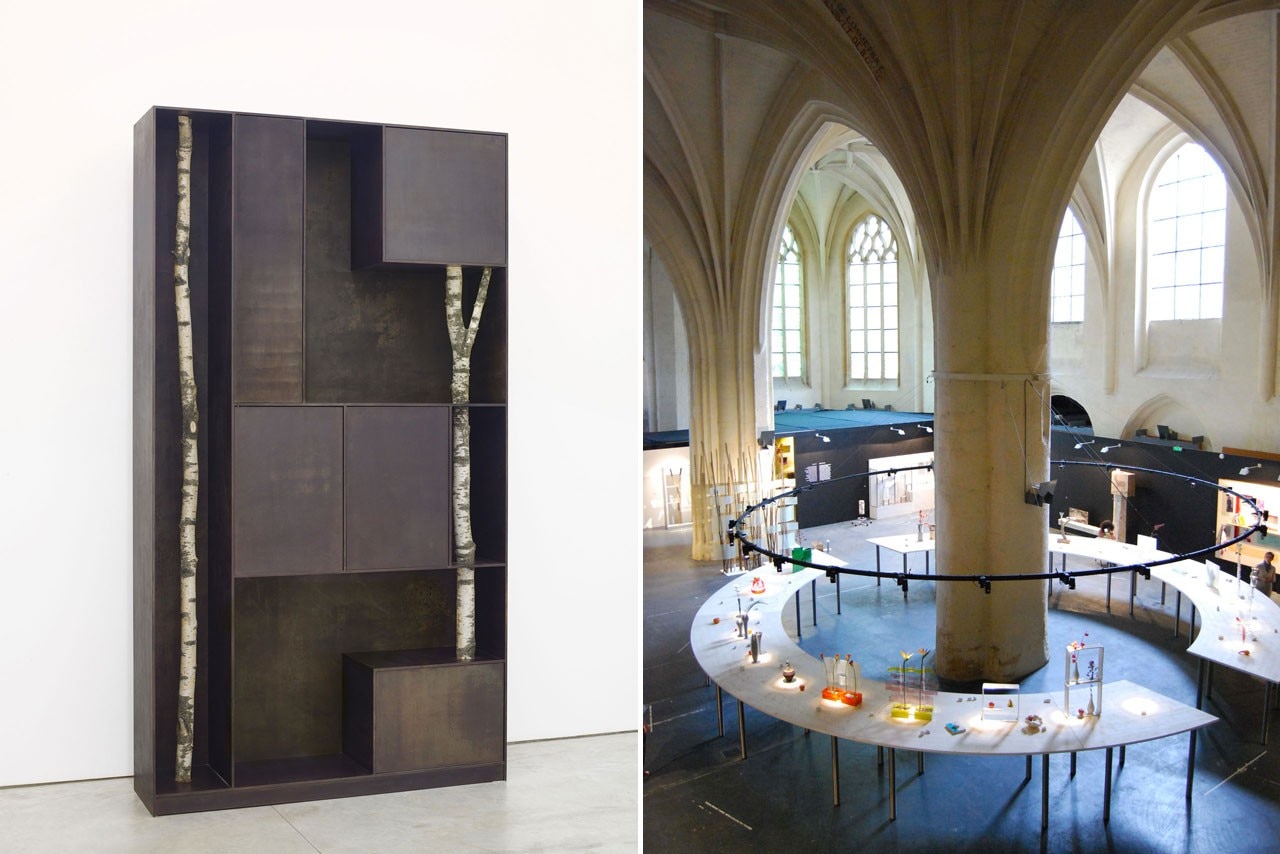
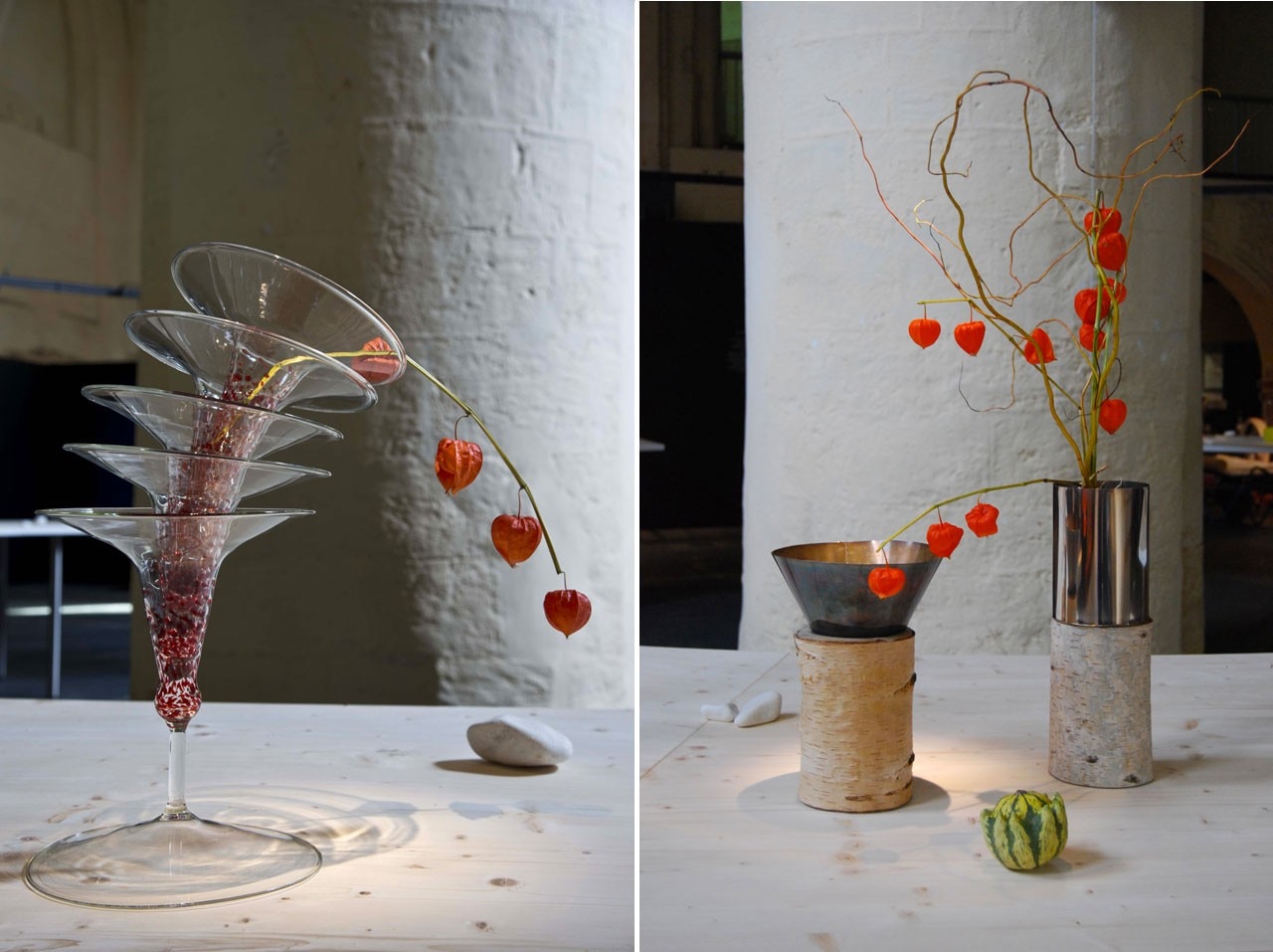
Art craftsmanship become a “gigantic place of experimentation” is seen here in a mirror viewer that endlessly multiplies a landscape of ceramic and porcelain works, including notably Louis XXI, porcelaine humaine (Manufacture de Sèvres): pale pink chalices in the sensual flesh colour of a woman’s skin, fine presences so transparent they are seemingly without substance.
The dramatic tension reached a peak in his works of the third millennium, in which the architect brought together a miscellany of fragments from different epochs, recomposed in a poetic dominated by amnesia and mystery, and not lacking in sophisticated, subtle and very Yiddish irony (Branzi is of Jewish origin). At the press conference, the architect explained that irony is part of life and allows him to look at worldly things without being devoured by them. Hence his Walls (2014), fresco-furniture filling the space of the Friedman-Benda gallery in New York with a slightly Pompeian air, are matched by humble storage furniture for domestic chores.
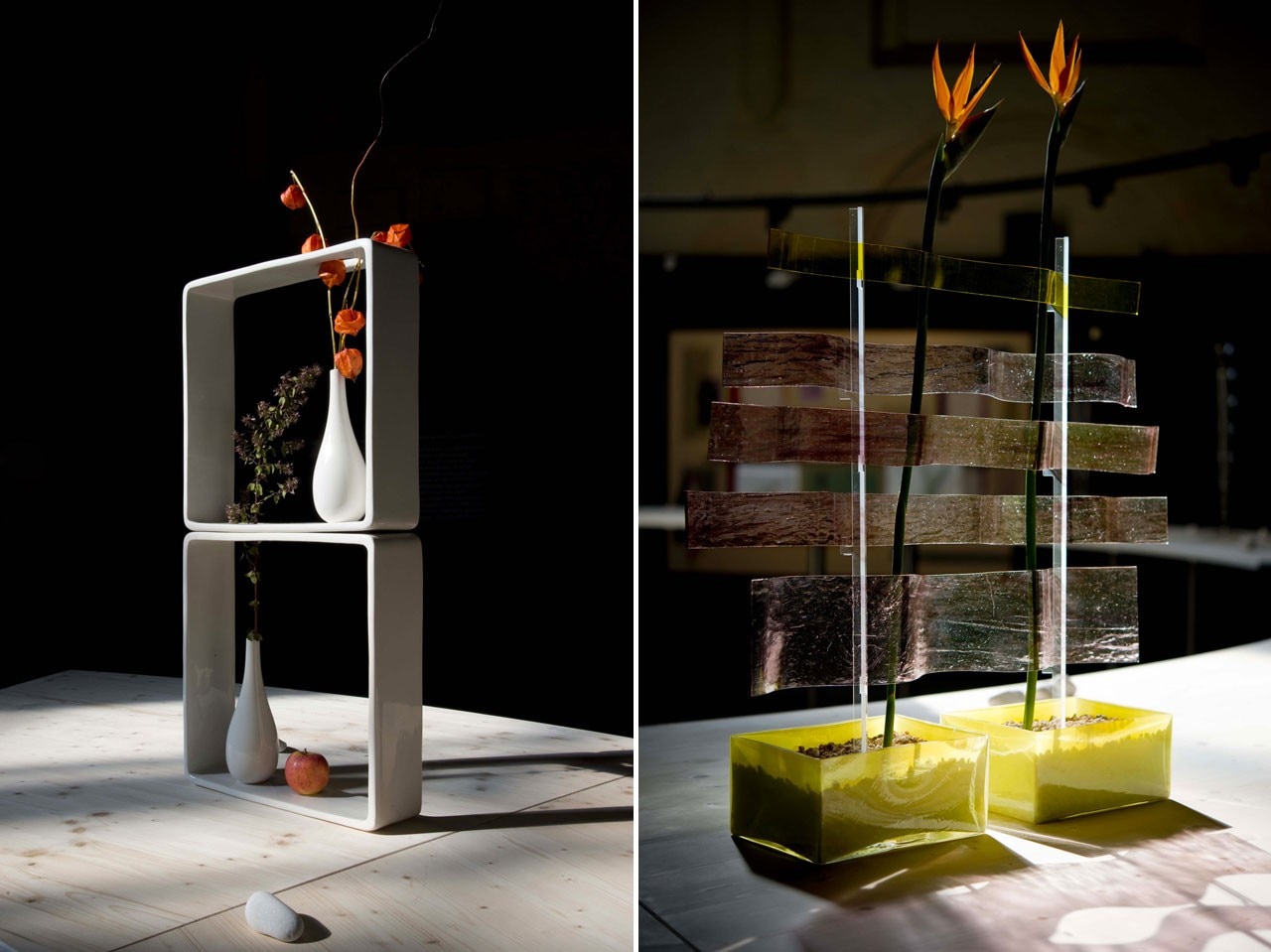
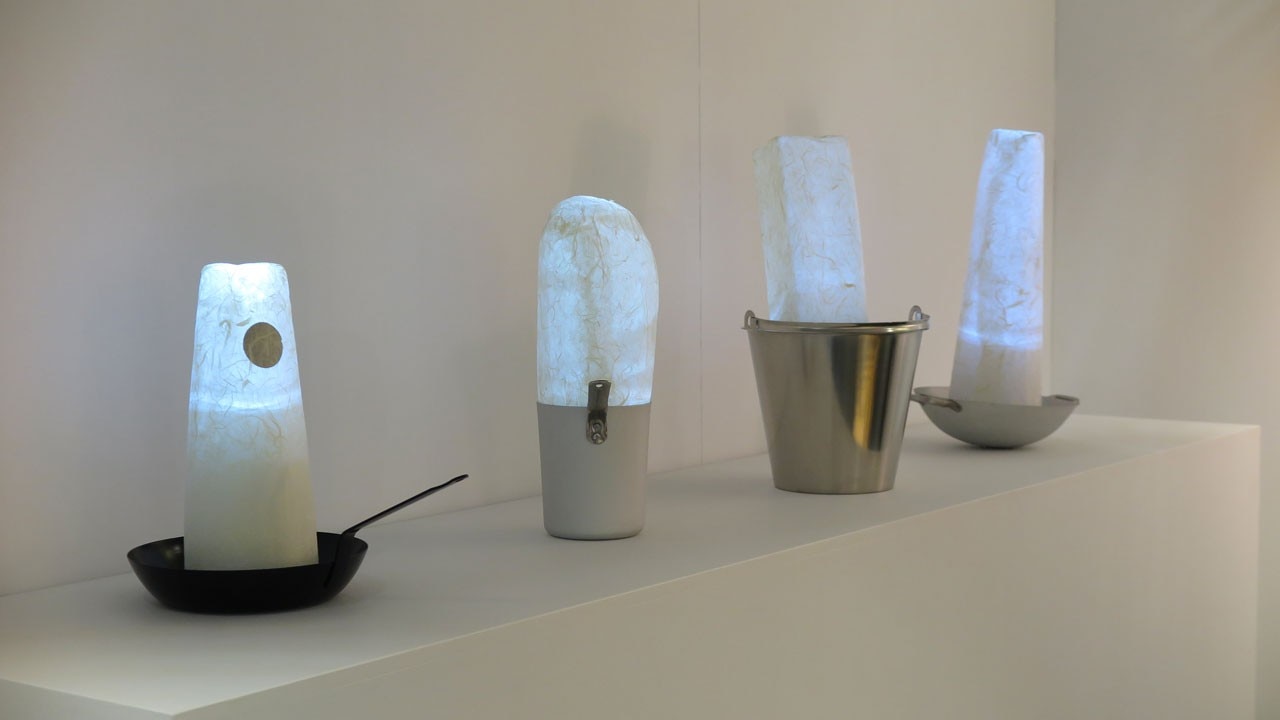
Branzi’s narration centres on the sacralisation of everyday life with two canaries being the co-protagonists of his Pergamo bird cage for the Bortolozzi gallery in Berlin.
In the nave of the church of Saint-Remi, the visitor’s gaze is drawn to a large ring wound around a monumental column to accommodate a number of vases, objects that have long occupied a key place in Andrea Branzi’s poetic. They are “autonomous spaces, micro places given over to what may seem superfluous but without which all becomes pointless: a space for flowers, for the sacred objects of the lay civilisation” (A.B. 2007). The works are the fruit of collaboration with galleries such as Clio Calvi and Rudy Volpi, Metea, Charles Zana, The Gallery Bruxelles and institutions such as Cirva in Marseille.
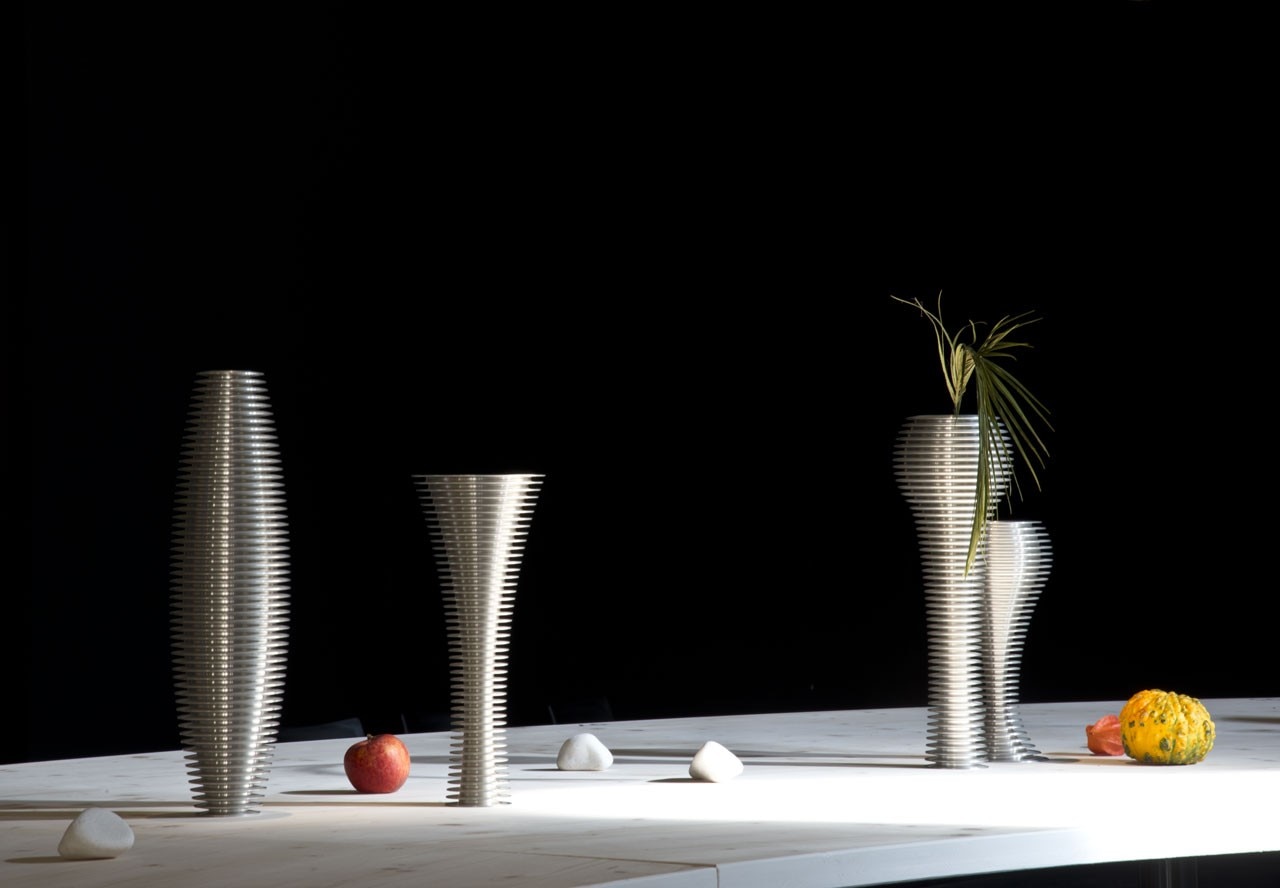
Underscoring the both sacred and domestic dimension are not only flowers but stones, dry leaves and vegetables: apples and small pumpkins?? are arranged with a care reminiscent of the art of Ikebana.
The exhibition extends to “No-Stop City Vision de Ville” by Arc en Rêve Centre d’Architecture. This prologue takes its name from his fundamental 1969 project with Archizoom, representing the theory behind Branzi’s work. The dimension of the endless city, which dissolves and is broken up to become simply a flow of commodities, is clarified in the No-Stop City and No-Stop Theater models and those presented at the 2010 Venice Architecture Biennale with the title “For a New Athens Charter”, expressing the need to rethink a city no longer based on zoning, as suggested by Le Corbusier in the document of the same title.
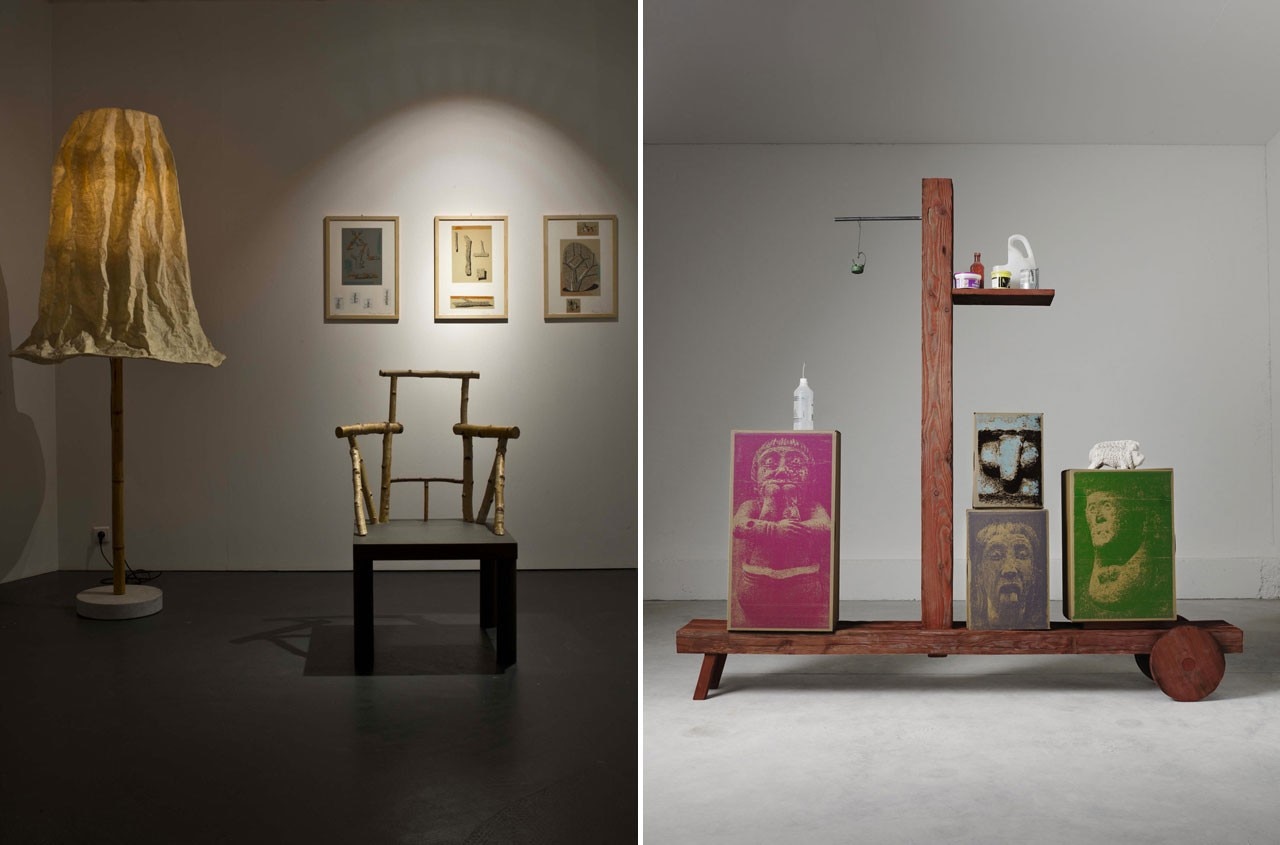
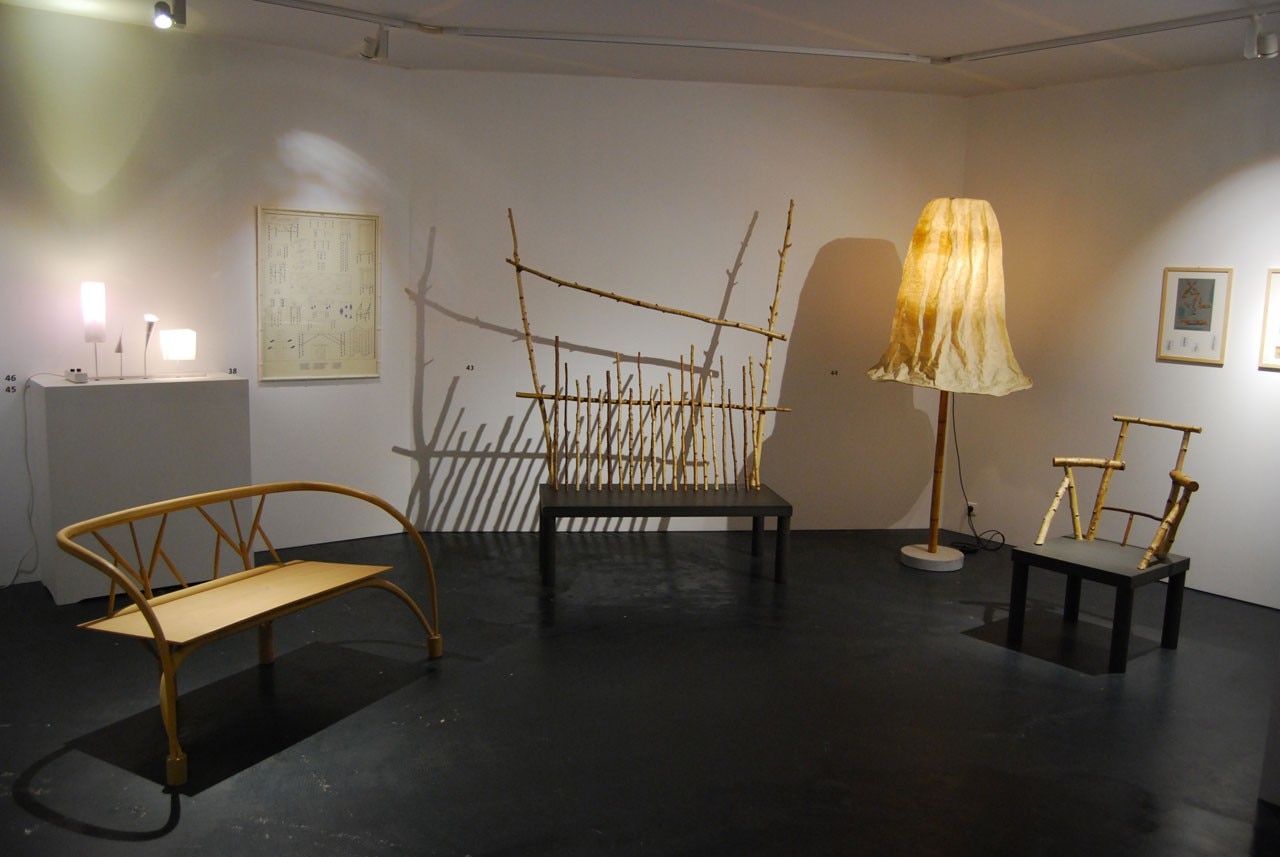
until 25 January 2015
Andrea Branzi, Pleased to meet you, 50 ans de création
Musée des Arts Decoratifs, Bordeaux


